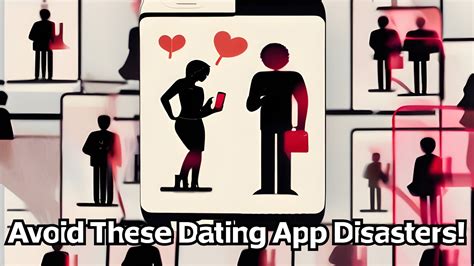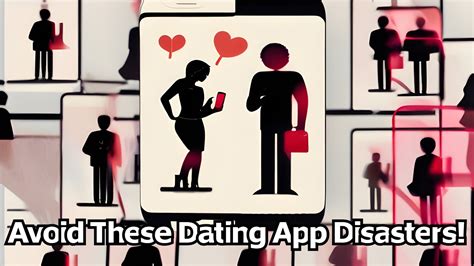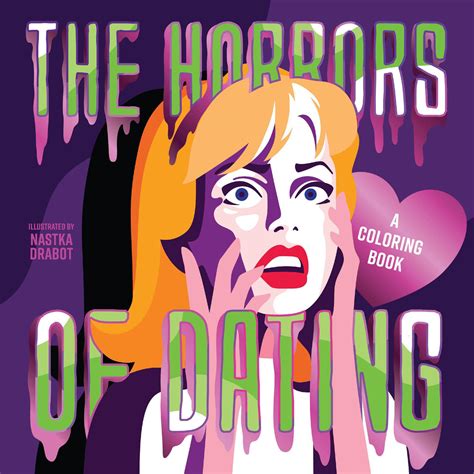
Dating app experiences can range from awkward to downright disastrous, prompting a debate: When does a bad date warrant an apology, or even financial compensation? Recent viral anecdotes highlight egregious dating behavior, sparking conversations about accountability in the modern dating landscape.
A surge of online discussions, fueled by shared horror stories, reveals a growing sentiment that some dating app encounters cross the line, meriting more than just a silent ghosting. Instances of dates demanding reimbursement for perceived shortcomings, exhibiting blatant disrespect, or misrepresenting themselves have ignited a debate on the ethics and expectations surrounding online dating. The question isn’t just about whether bad dates are common, but about the appropriate response when a date inflicts emotional or financial harm.
The catalyst for much of this discussion is a collection of user-submitted stories detailing particularly awful dating experiences. These anecdotes, shared across various social media platforms, paint a picture of dates gone wrong, ranging from minor offenses to major breaches of etiquette and decency. Some common themes emerge: financial impropriety, where dates demand money back for meals if they weren’t sufficiently impressed; deceptive behavior, where individuals drastically misrepresent their appearance or intentions; and blatant rudeness, including insults and disrespectful treatment of service staff.
One widely circulated story involves a man who allegedly requested his date to repay him for her meal after she revealed she wasn’t interested in a second date. “He actually asked me to Venmo him for my half of the meal when I told him I didn’t think we were a match,” shared one woman, highlighting the increasing expectation of immediate returns on dating investments. This instance, while extreme, encapsulates a growing trend of transactional relationships where emotional connection is secondary to perceived financial gains.
Another narrative details a woman who discovered her date was significantly older than his profile suggested and still lived with his parents, painting a completely different picture than what was presented online. The discrepancy between online persona and reality is a recurring theme, leading to feelings of betrayal and wasted time. As dating profiles become increasingly curated, the potential for misrepresentation grows, blurring the lines between harmless exaggeration and outright deception.
The demand for apologies, and in some cases, financial compensation, stems from a sense of violation and the belief that certain behaviors are unacceptable, regardless of the context. While some argue that dating inherently involves risk and disappointment, others contend that deliberate deception or disrespectful treatment warrants a more meaningful response than simply moving on. The call for accountability reflects a desire to establish clearer boundaries and expectations in the often-unregulated world of online dating.
Legal experts suggest that while pursuing legal action for a bad date is unlikely to be successful, the ethical implications of these encounters are significant. “While you probably can’t sue someone for being a terrible date, the underlying behavior might point to larger issues,” says attorney Jane Doe, emphasizing the importance of recognizing potentially harmful patterns. The focus, therefore, shifts from legal recourse to establishing a social consensus on what constitutes acceptable behavior and encouraging individuals to take responsibility for their actions.
The rise in dating app disasters has also prompted discussions about personal safety and the need for greater awareness. Experts recommend meeting in public places, informing friends or family of your whereabouts, and trusting your instincts if a situation feels unsafe. “Always prioritize your safety and don’t hesitate to end a date if you feel uncomfortable,” advises dating coach Sarah Smith, highlighting the importance of self-preservation in the often-unpredictable world of online dating.
Furthermore, the prevalence of these stories raises questions about the screening processes employed by dating apps. While some platforms implement verification measures, the ability to create fake profiles or misrepresent oneself remains a persistent problem. Users are urged to exercise caution and conduct thorough research before meeting someone in person. Reverse image searches, social media checks, and careful scrutiny of profile information can help identify potential red flags and mitigate the risk of encountering deceptive individuals.
The debate surrounding dating app disasters and the demand for apologies or compensation reflects a larger cultural shift towards holding individuals accountable for their actions. As online dating becomes increasingly prevalent, establishing clear expectations and promoting responsible behavior is crucial for creating a safer and more respectful dating environment. Whether this translates into formal legal frameworks or simply a greater emphasis on ethical conduct, the conversation highlights the need for ongoing dialogue and a collective effort to address the challenges of modern dating.
The core issue is that dating apps, while offering a convenient way to meet new people, often lack the social accountability mechanisms that exist in traditional dating settings. The anonymity afforded by online profiles can embolden individuals to engage in behaviors they might otherwise avoid, leading to a higher incidence of disrespectful or deceptive interactions.
Moreover, the sheer volume of potential partners available on dating apps can create a sense of disposability, where individuals feel less invested in building genuine connections and more inclined to prioritize superficial qualities. This can contribute to a culture of casual cruelty, where ghosting, breadcrumbing, and other forms of disrespectful behavior become normalized.
The call for apologies and compensation can be seen as a way to reintroduce a sense of accountability into this environment, reminding individuals that their actions have consequences and that treating others with respect is not optional. While financial compensation may not always be appropriate or feasible, the act of acknowledging wrongdoing and offering a sincere apology can go a long way towards repairing the damage caused by a bad date.
However, the issue is complex and nuanced, and there is no one-size-fits-all solution. Some argue that demanding compensation trivializes the dating process and reduces it to a purely transactional exchange. Others contend that it is a legitimate way to seek redress for emotional or financial harm caused by another person’s actions.
Ultimately, the debate over dating app disasters and the demand for apologies or compensation reflects a broader struggle to navigate the ethical challenges of modern dating in an increasingly digital world. As online dating continues to evolve, it is crucial to foster open and honest conversations about expectations, boundaries, and responsibilities, and to develop strategies for creating a safer and more respectful dating environment for everyone.
To delve deeper, consider the psychological aspects involved. The anonymity of online dating can, as noted, embolden some to act in ways they wouldn’t face-to-face. This is compounded by the “shopping” mentality encouraged by swiping through profiles, reducing potential partners to a series of attributes to be quickly judged. This dehumanization can lead to a lack of empathy and a willingness to engage in behaviors that would be considered unacceptable in more personal settings.
The “sunk cost fallacy” also plays a role. If someone has invested time and money in preparing for a date, they may feel entitled to a certain level of return, regardless of whether there is any genuine connection. This can lead to resentment and a sense of being “owed” something, which can manifest as demands for reimbursement or other forms of compensation.
From a sociological perspective, the rise of dating apps reflects a broader trend towards individualization and the commodification of relationships. In a society where everything is seen as a transaction, it is perhaps not surprising that dating has also become increasingly transactional. This can lead to a focus on superficial qualities and a lack of commitment to building meaningful relationships.
Furthermore, the stories of dating app disasters often highlight issues of power and privilege. Men who demand reimbursement from women, or who misrepresent themselves in order to attract a partner, are often exploiting existing power imbalances. These behaviors can be seen as a form of entitlement, reflecting a belief that they are entitled to the time and attention of others, regardless of their feelings or needs.
Addressing these issues requires a multi-faceted approach. Dating apps can take steps to improve their screening processes and to promote responsible behavior. Users can educate themselves about the risks of online dating and take steps to protect themselves. And society as a whole can work to challenge the cultural norms that contribute to disrespectful and dehumanizing behavior.
Beyond the individual stories, the trend highlights a societal issue regarding the changing landscape of relationships and courtship. In previous generations, dating was often more structured and involved a degree of social accountability. Family and friends played a role in introducing potential partners and monitoring their behavior. Today, dating is often a much more private and individual affair, which can make it easier for people to get away with bad behavior.
The anonymity of the internet further exacerbates this problem. People can create fake profiles, lie about their backgrounds, and disappear without a trace. This can make it difficult to hold them accountable for their actions.
Another factor contributing to the rise of dating app disasters is the increasing pressure to find a partner. In a society that places a high value on romantic relationships, people may feel pressured to use dating apps even if they are not comfortable with the process. This can lead them to make poor choices and to tolerate bad behavior.
Finally, the rise of dating apps has coincided with a decline in traditional social institutions, such as churches and community organizations, which used to play a role in bringing people together. As these institutions have weakened, people have increasingly turned to dating apps as a way to meet new people.
In response to these challenges, some dating apps are beginning to implement new features designed to promote safety and accountability. For example, some apps now allow users to report bad behavior and to verify their identities. Others are using artificial intelligence to detect and remove fake profiles.
However, these measures are not enough. Ultimately, it is up to individuals to take responsibility for their own behavior and to treat others with respect. This means being honest about who you are, being respectful of others’ boundaries, and being willing to apologize when you make a mistake.
It also means being aware of the risks of online dating and taking steps to protect yourself. This includes meeting in public places, telling a friend or family member where you are going, and trusting your instincts.
The debate over dating app disasters and the demand for apologies or compensation is a sign that people are becoming more aware of the challenges of modern dating. It is also a sign that they are demanding more accountability from dating apps and from the people who use them.
As online dating continues to evolve, it is important to have ongoing conversations about these issues and to develop strategies for creating a safer and more respectful dating environment for everyone. This will require a collective effort from dating apps, users, and society as a whole.
The problem, as many relationship experts point out, is that dating apps, while offering unparalleled access to potential partners, often fail to replicate the social cues and accountability mechanisms of traditional dating. In the offline world, mutual friends, family connections, and community involvement often serve as checks and balances, discouraging egregious behavior. These safeguards are largely absent in the often-anonymous realm of online dating.
Another crucial aspect is the impact of social media on dating expectations. The curated perfection often presented on platforms like Instagram can create unrealistic standards and foster a culture of comparison and competition. This can lead to disappointment and dissatisfaction in real-life dating experiences, even if those experiences are perfectly normal and healthy.
Furthermore, the sheer volume of choices available on dating apps can paradoxically lead to a sense of dissatisfaction. The “paradox of choice” suggests that having too many options can make it more difficult to make a decision and can lead to regret even after a decision has been made. In the context of dating, this can manifest as a constant feeling that there might be someone “better” out there, leading to a reluctance to commit and a tendency to discard potential partners prematurely.
The issue of financial expectations in dating is also a complex one. While some argue that traditional gender roles dictate that men should pay for dates, others believe that dating should be a more equitable exchange. The demand for reimbursement can be seen as a reaction against perceived unfairness, or as an attempt to assert control in a situation where power dynamics are often ambiguous.
However, it is important to distinguish between reasonable expectations and outright exploitation. Demanding reimbursement after a single date, especially if there was no prior agreement or indication that the date would be transactional, is generally considered to be inappropriate. On the other hand, if someone intentionally misrepresents themselves or engages in deceptive behavior in order to obtain financial gain, then demanding compensation may be a more justifiable response.
Ultimately, the question of whether a bad date warrants an apology or compensation depends on the specific circumstances and the intentions of the parties involved. There is no easy answer, and each situation must be evaluated on its own merits.
However, it is clear that the rise of dating app disasters is a symptom of a larger problem: the lack of clear expectations and accountability in the modern dating landscape. Addressing this problem requires a multi-faceted approach, involving dating apps, users, and society as a whole.
Dating apps can take steps to improve their screening processes, to promote responsible behavior, and to provide users with resources for dealing with bad experiences. Users can educate themselves about the risks of online dating, take steps to protect themselves, and hold others accountable for their actions. And society as a whole can work to challenge the cultural norms that contribute to disrespectful and dehumanizing behavior.
By working together, we can create a safer and more respectful dating environment for everyone.
Frequently Asked Questions (FAQ):
-
What constitutes a “dating app disaster” in the context of this article?
A dating app disaster refers to a negative dating experience originating from a dating app, often involving egregious behaviors such as demanding financial reimbursement, significant misrepresentation, or disrespectful treatment. These experiences can range from minor offenses to major breaches of etiquette and decency, leading to emotional or financial harm for one or both parties involved. The defining characteristic is that the date significantly deviates from reasonable expectations of respect and honesty.
-
Is it legally possible to sue someone for a bad date?
According to legal experts cited in the article, pursuing legal action solely for a bad date is unlikely to be successful. While the act of a disappointing date itself isn’t typically grounds for a lawsuit, underlying behavior such as fraud, intentional infliction of emotional distress, or other torts might be actionable. However, these cases are rare and require a high burden of proof. The article emphasizes that while legal recourse is unlikely, the ethical implications of such encounters remain significant.
-
What are some recommended safety precautions for online dating?
Dating safety experts recommend several precautions, including: meeting in public places, informing friends or family about your date’s details and whereabouts, conducting reverse image searches to verify a person’s identity, trusting your instincts if a situation feels uncomfortable, and not hesitating to end a date if you feel unsafe. These precautions aim to prioritize personal safety and awareness in the often-unpredictable world of online dating.
-
What are dating apps doing to address these “dating app disasters”?
Some dating apps are implementing verification measures, such as identity verification and allowing users to report inappropriate behavior. There are also efforts to utilize AI to identify and remove fake profiles. While these measures are a step in the right direction, it’s acknowledged that they are not foolproof and that individuals must also take responsibility for their safety and behavior. Further, continuous improvement in detection and reporting mechanisms is crucial for ensuring accountability.
-
What is the underlying cause of the rise in dating app disasters and the demand for apologies or compensation?
The article suggests several underlying causes, including the anonymity afforded by online profiles, which can embolden disrespectful behavior; the transactional nature of modern dating, where emotional connection is sometimes secondary to perceived financial gains; the pressure to find a partner, which can lead to poor choices; and the decline of traditional social institutions that once provided accountability in dating. Additionally, the unrealistic expectations fostered by social media and the “paradox of choice” contribute to dissatisfaction and a lack of commitment in online dating relationships. Addressing these issues requires a multi-faceted approach involving dating apps, users, and society as a whole.









